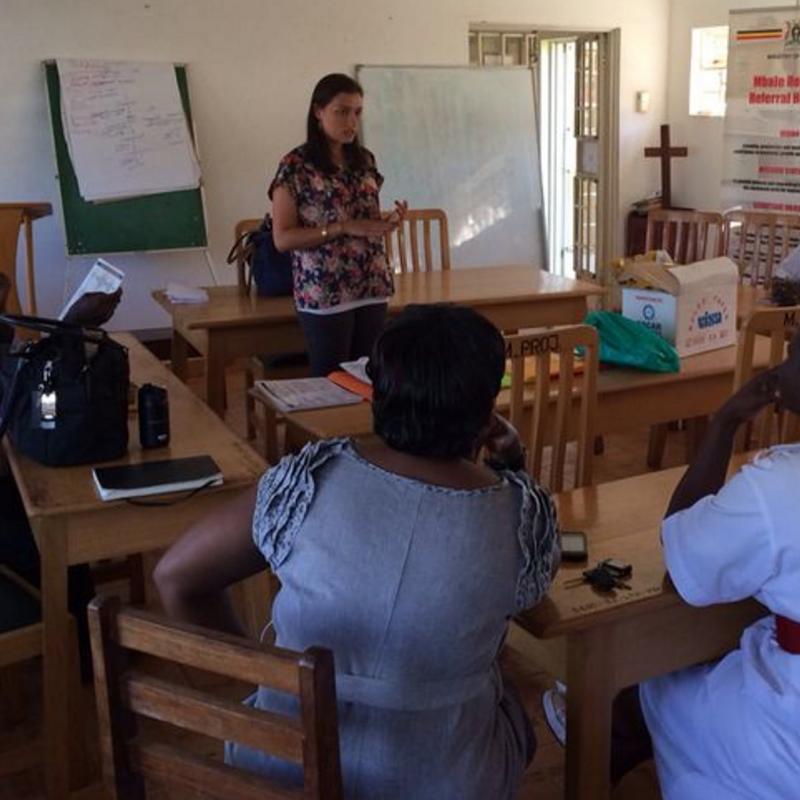Breadcrumb
Brittany worked as an analyst at a New York law firm specialising in litigation and disputes before coming to the Blavatnik School in 2012, ready for a change and fascinated by Professor Paul Collier’s thinking.
During the MPP she particularly enjoyed the courses led by Adam Ritchie and Devi Shridar within the science and public policy module, aimed at giving students the tools to become better consumers of scientific advice. Having developed a strong interest in the healthcare sector, Brittany decided to spend her summer project with the International Finance Corporation (IFC), helping its Health in Africa Initiative’s work to improve South Sudan’s public health system.
The experience proved a springboard to join the global health arena, and Brittany now works with the Clinton Health Access Initiative as part of the organisation’s Global Laboratory Services Team, which works on improving access to affordable, high-quality HIV and TB diagnostics.
Brittany and her team support national governments and Ministries of Health in Sub-Saharan Africa and South-East Asia in scaling up and improving the quality of their diagnostics programs, specifically through market-based interventions. They work simultaneously on the supply and demand sides of the market to introduce new diagnostic technologies, lower pricing for commodities, and support governments in building capacity to manage testing programmes. They work in partnership with governments as well as international organisations such as UNAIDS and the World Health Organization to shape global strategic thinking.
The rigorous approach to developing and executing strategies as well as measuring outcomes learned during her MPP are two of the things Brittany still relies upon in her every day job. For anyone with a private sector background, understanding how things work outside the private sector is an important part of the journey, as Brittany confirms.
"The MPP helped me in my transition from the private sector into the world of the public sector and international organisations. At Oxford I learned to understand the complexity of governments and appreciate the multitude of factors – and sometimes trade-offs – that have to be taken into account when making a public policy decision.”
So what is the biggest challenge for healthcare in developing countries in the next few years?
“Financing. Moving away from a donor-driven model into a more sustainable, government-driven framework is the only way for access to healthcare to improve, but it’s going to be a difficult task.”
July 2015

